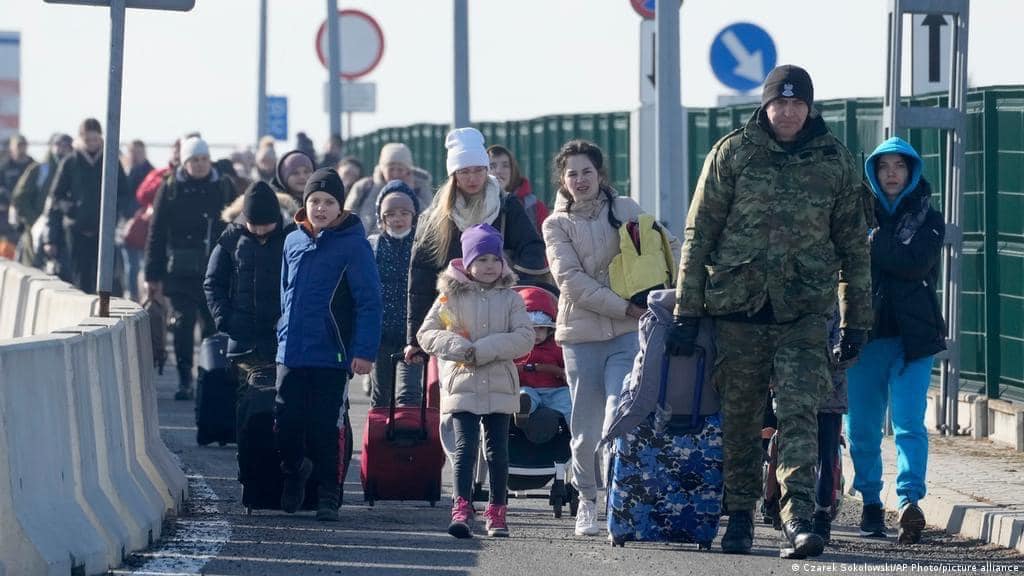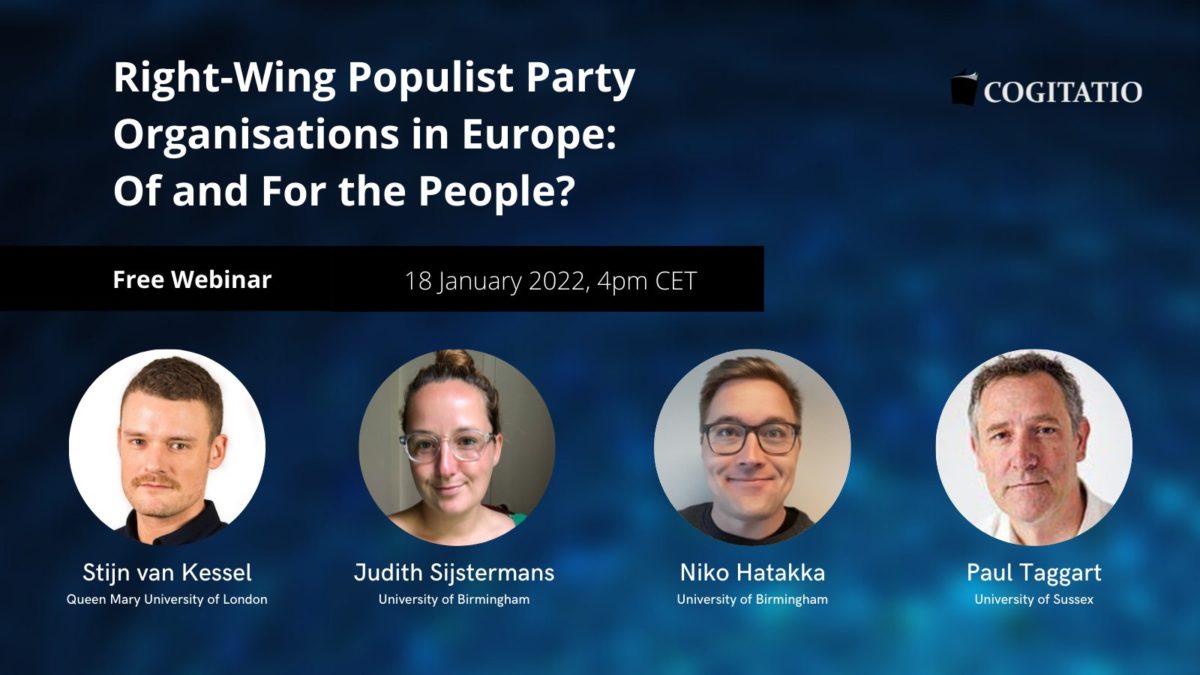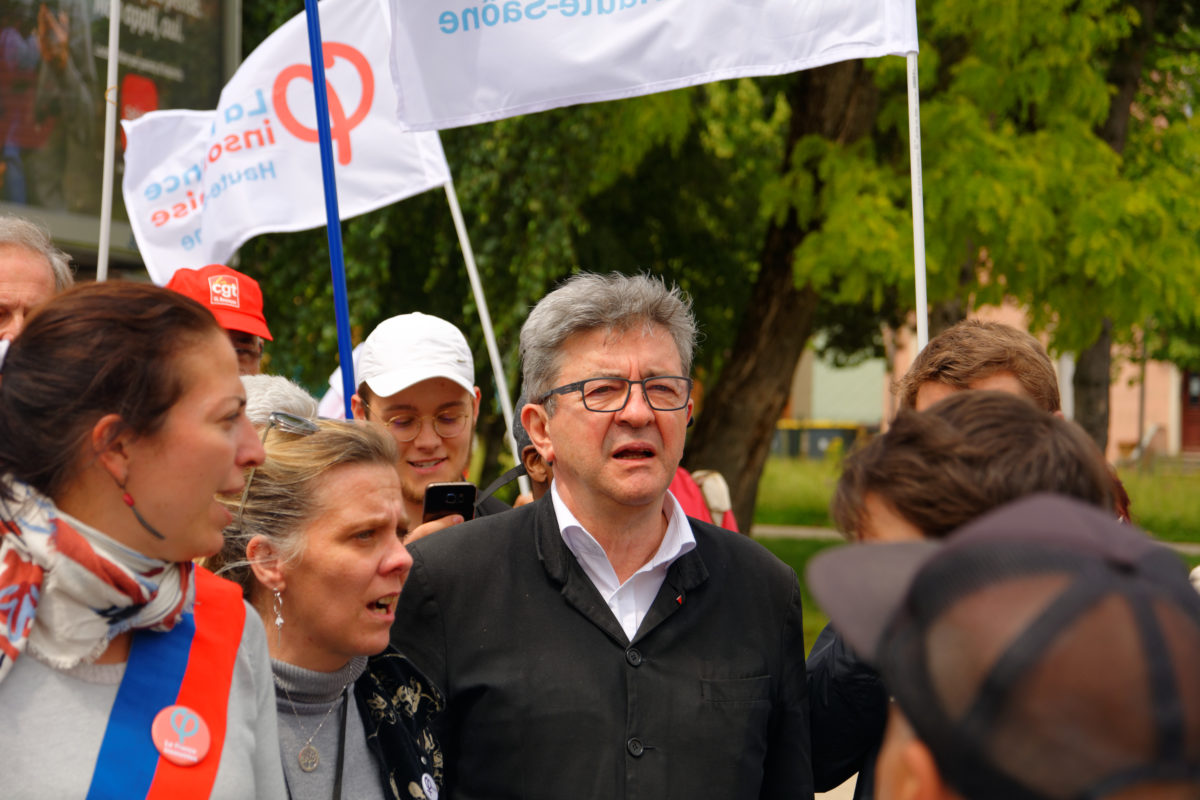Siding with the underdog: Explaining the populist radical right’s response to Russia’s invasion of Ukraine
by Prof. Daniele Albertazzi (University of Surrey), Dr. Adrian Favero (University of Groningen), Dr. Niko Hatakka (University of Helsinki), Dr. Judith Sijstermans (University of Edinburgh)
Russia’s invasion of Ukraine has produced a dramatic shift in the positions of several of Europe’s populist radical right parties. Daniele Albertazzi, Adrian Favero, Niko Hatakka and Judith Sijstermans explain why parties that previously opposed refugees and voiced support for Vladimir Putin have been quick to change their approach in response to the war.
When Matteo Salvini, the leader of Italy’s populist radical right League, visited the Polish town of Przemysl on 8 March, nobody had prepared him for the welcome party organised for him by the town mayor, Wojciech Bakun. Hoping to be thanked for bringing aid to Ukrainian refugees in the area, Salvini was instead reminded of the warm words he had said in the past about Russian President Vladimir Putin and gifted a T-shirt emblazoned with Putin’s own image. Salvini had posted pictures of himself wearing the very same T-shirt in Moscow, and had repeatedly visited Putin and representatives of his party in 2015 and 2017, while criticising the sanctions imposed on Russia by the EU after the 2014 annexation of Crimea.
We have been studying populist radical right parties in Western Europe for several years, including the language used by Italy’s League, the Finns party, Flemish Interest and the Swiss People’s Party on the issue of refugees and Russia. As parties within this family soften their tough image on asylum seeking in light of the conflict in Ukraine, and also reconsider their position on Russia, it is important to understand how far they are willing to go, and why.
As for attitudes towards Putin’s Presidency, the evidence shows that the radical right has shifted its positions quite rapidly. In Flanders, Flemish Interest had shown understanding for Vladimir Putin’s politics in the past, although it never embraced Salvini’s openly pro-Putin positions. Hence the party’s leader, Tom van Grieken, said of Putin on 13 December 2016: “He does a good job for Russian interests. But I’m not sure he is good for the rest of the world”, adding that “Putin is not black or white, but 50 shades of grey.” Moreover, three of the party’s MPs agreed to act as “international observers” for the referendum on the state of Crimea held in March 2014. While the party distanced itself from this visit, its MPs clearly contributed to legitimising the vote, one that had taken place after the region was invaded by Russian forces.
The attitude of the Swiss People’s Party has also arguably been less hostile to Russia than many other parties in Europe. For instance, it rejected calls to sanction the country in 2014, highlighting the need for Switzerland to remain neutral, despite Crimea having been annexed by force. As for the Finns Party, it has never been pro-Russian (unlike some far-right fringe parties in Finland), and yet its representatives criticised the EU’s decision to impose sanctions, in line with the pronounced Euroscepticism characterising the party in 2014.
Among the many consequences of the war in Ukraine, there has also been a reframing by many of these parties of their stance concerning both Russia and asylum seekers. Hence Salvini and van Grieken have expressed unequivocal support for Ukraine, with the latter tweeting about the difference between what he sees as “real” refugees fleeing Ukraine and the “fake” variety travelling to Europe from Syria and Afghanistan. His party has also attacked the Belgian government for what it perceives to be small and tardy investments in the defence sector. As such, Ukraine has served as a tool for Flemish Interest to bolster its own credentials as the party that cares about the country’s military strength.
Interestingly, the Russian invasion has completely changed the military policy of the Finns Party. In mid-February, the party’s parliamentary group leader had described the idea that Finland could join NATO as “somewhat unnecessary” and as “a factor that would undermine Finnish sovereignty”, reflecting the party’s long-standing support for retaining Finland’s non-allied status. Yet, after Ukraine was invaded, the leaders of the party’s parliamentary group and a majority of the party’s supporters accepted the need for NATO membership.
Therefore, of the parties that we have studied in our research project, the only one that does not appear to have shifted position because of Ukraine is the Swiss People’s Party. While Switzerland’s executive (of which the Swiss People’s Party is a member) decided on 28 February to adopt EU sanctions against Russia, the party insisted that Switzerland should remain committed to impartiality. The former minister (and high profile charismatic leader), Christoph Blocher, even stated that “by accepting to apply sanctions, Switzerland is now at war”.
How can we explain these shifts in the positions of most populist radical right parties? Firstly, it is important to stress the centrality that nationalism maintains for these parties’ identities. Hence the abandonment of Switzerland’s pluri-secular stance based on armed neutrality and independence from its larger European neighbours is unacceptable to the Swiss People’s Party, while the memory of Finland’s recent conflict with Russia makes the Finns party’s rapprochement with EU positions less costly in political terms.
In addition to this, one has to consider the huge wave of sympathy for the Ukrainians that the Russian invasion appears to have generated. Although populist radical right parties are often depicted as outsiders by the media – a definition they are happy to embrace, as it helps them distinguish themselves from established parties that they regard as corrupt – these are in fact parties often well rooted in their respective political systems and that have served in government in the past (with the exception of Flemish Interest). Naturally, considering the roots of these parties’ nationalist platforms, the fact that Ukrainian refugees are Europeans coming from a mostly Christian country makes the change of policy easier to sell to party members and sympathisers.
Radical right leaders are not extreme mavericks unable to read political events, despite being portrayed as such by many in the media. On this occasion, their willingness to set aside their unashamedly anti-refugee stance and avoid wasting political capital trying to turn the tide of sympathy for Ukraine is testimony to their ability to read the room and quickly adapt in the face of shifts in public opinion – even at the occasional risk of being called out for their past actions and statements. Indeed, adaptability and flexibility are apparent strengths of parties on the European radical right today and their opponents should not underestimate them.
This article originally appeared on the LSE Europe Blog and is reproduced with full attribution.
—
Daniele Albertazzi is Professor of Politics at the University of Surrey. He is the principal investigator of “The survival of the mass party: Evaluating activism and participation among populist radical right parties (PRRPs) in Europe”, funded by the ESRC (project reference: ES/R011540/1).
Adrian Favero is Assistant Professor in European Politics & Society at the University of Groningen. His research focuses on European integration, party organisation and intra-European migration. He previously held a postdoctoral position at the University of Birmingham.
Niko Hatakka is a Postdoctoral Researcher in Politics and Communication at the University of Helsinki. Currently he works in the Academy of Finland funded project ‘Media platforms and social accountability’. His previous postdoctoral affiliations include the University of Birmingham and the Centre for Parliamentary Studies at the University of Turku.
Judith Sijstermans is a Research Fellow on the ESRC funded project “A Family of Nations? Brexit, Devolution and the Union” at the University of Edinburgh, where she is affiliated with the Centre on Constitutional Change. She is also a Teaching Fellow at the University of Dundee and was previously a Research Fellow at the University of Birmingham.








